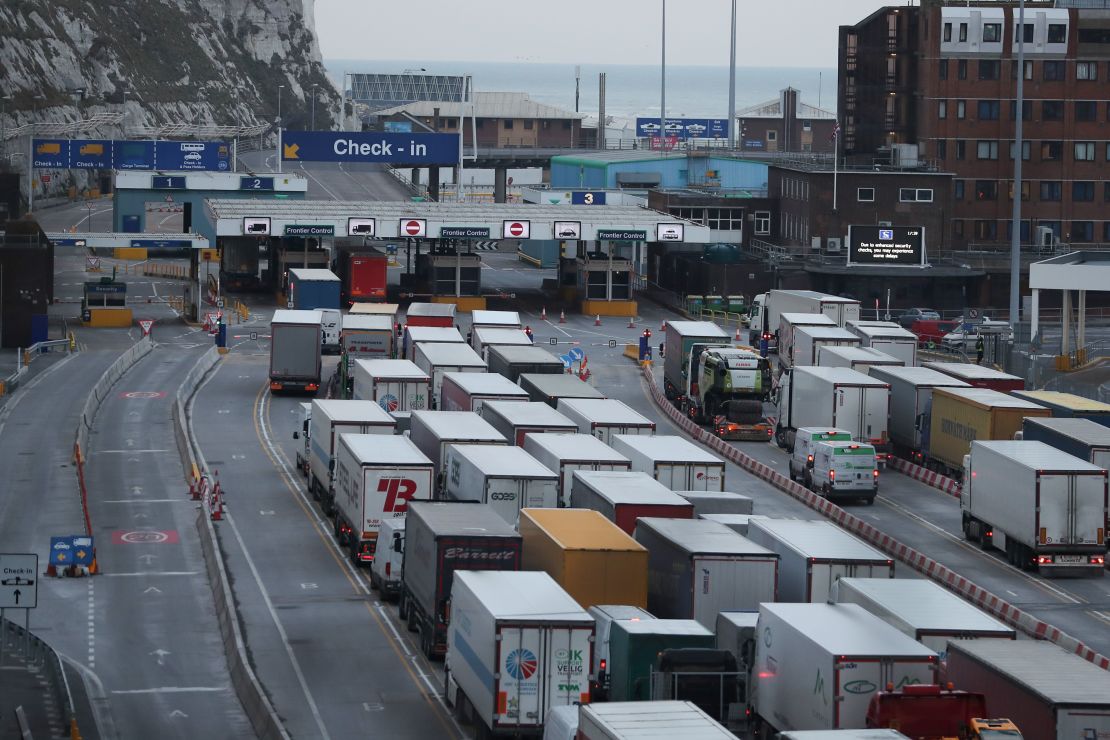Boris Johnson’s government has released its “Operation Yellowhammer” planning document, which warns of medicine shortages, severe delays at the Dover-Calais crossing and an increase in food prices if the UK leaves the European Union without a deal.
The disclosure of the document – which describes a “reasonable worst-case scenario” – was forced on the government by lawmakers, who voted on Monday to approve its release.
But Michael Gove, the minister in charge of no-deal planning, said the government would not release internal communications between aides about Johnson’s prorogation of Parliament, which was also mandated in the bill passed by Parliament.
“As you will also be aware, by longstanding convention under successive Administrations of all political colours, the Government does not release Cabinet and Cabinet Sub-Committee papers,” Gove wrote in a letter sent to former Conservative MP Dominic Grieve, who had led to push for their publication.
The Operation Yellowhammer document reports that disruption at English Channel crossings could last up to three months before it eases, with up to 85% of heavy goods vehicles unprepared for new French customs checks that will be introduced on day one after a no-deal Brexit.
Unmitigated, that would have an impact on the supply of medicines to the UK, the document also warns. “The reliance of medicines and medical products’ supply chains on the shore straits crossing make them particularly vulnerable to severe extended delays; three-quarters of medicines come via the short straits,” the report says.
It adds: “While some products can be stockpiled, others cannot due to short shelf lives.
“Certain types of fresh food supply will decrease,” and “critical dependencies for the food supply chain may be in short supply,” the document also says.
“In combination, these two factors will not cause an overall shortage of food in the UK but will reduce availability and choice of products and will increase price, which could impact vulnerable groups,” it reads, adding that “there is a risk that panic buying will cause or exacerbate food supply disruption.”
In a letter from Michael Gove to Hilary Benn, Gove said: “I thought it would be helpful to publish the Operation Yellowhammer document based on assumptions drawn up under the last Government. This document is complete save for one section that has been marked as redacted on the basis of its commercial sensitivity.”

“Protests and counter-protests” will take place across the country in the aftermath of a no-deal split and “may absorb significant amounts of police resource,” the Home Office said as one of its contributions to the report. “There may also be a rise in public disorder and community tensions,” it added.
On the Northern Irish border question that has proven such an obstacle to the Brexit process to date, Yellowhammer warns the government’s “no new checks with limited exceptions” model “is likely to prove unsustainable due to significant economic, legal and biosecurity risks.”
“Disruption to key sectors and job losses are likely to result in protests and direct action with road blockages. Price and other differentials are likely to lead to the growth of the illegitimate economy.
“There will be significant pressure to agree new arrangements which supersede the day one model within days or weeks.”
Gibraltar will see disruption to supply goods, medicines, trans-frontier shipments of waste and delays of 4+ hours for “at least a few months.”
Fuel price rises in London and the southeast of England are also anticipated in the report, as is the “significant electricity price increases for consumers” if a split in the Single Electricity Market occurs.
CNN’s Sebastian Shukla contributed reporting.





